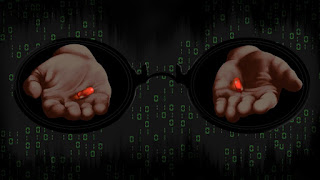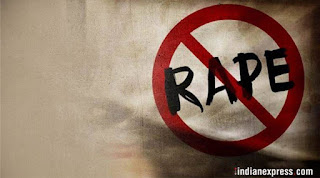"Poverty and Greed: Breaking the Cycle"
Title: "Poverty and Greed: Breaking the Cycle"
Introduction:
Poverty and greed are two intertwined and often misunderstood phenomena that have a significant impact on individuals, communities, and societies around the world. Poverty is defined as a lack of resources, including financial resources, that is necessary to meet basic needs, while greed is an excessive desire for wealth, material possessions, or power. While these two concepts might seem unrelated, they are often interconnected, with poverty sometimes leading to greed and greed sometimes contributing to poverty. In this book, we will explore the relationship between poverty and greed, the ways in which they can perpetuate each other, and the steps that can be taken to break the cycle and promote overall well-being.
Chapter 1: Understanding Poverty and Greed
Poverty is a complex issue that is influenced by a variety of factors, including economic, social, and political conditions. It can have serious negative impacts on physical and mental health, as well as on overall well-being. Greed, on the other hand, is often seen as a negative character trait, associated with selfishness and a lack of empathy. However, like poverty, greed is a multifaceted phenomenon that can be influenced by a range of factors, including cultural values, personal experiences, and social norms.
In this chapter, we will explore the definitions and characteristics of poverty and greed, as well as the ways in which they are related and how they can interact with each other. We will also discuss the prevalence of poverty and greed in different parts of the world, and the ways in which they impact individuals, communities, and societies.
Chapter 2: Poverty as a Cause of Greed
While poverty is often seen as a result of greed, in some cases it can also be a cause of greedy behavior. When individuals are struggling to meet their basic needs, they may be more likely to engage in activities that are intended to improve their financial situation, even if those activities are unethical or illegal. For example, a person living in poverty might be more likely to engage in theft, fraud, or bribery in order to make money.
In this chapter, we will explore the ways in which poverty can lead to greedy behavior, and the psychological and social factors that contribute to this relationship. We will also look at specific examples of how poverty has led to greed in different contexts, including case studies of individuals who have turned to dishonest or illegal activities in order to escape poverty.
Chapter 3: Greed as a Cause of Poverty
On the other hand, greed can also contribute to poverty, especially when it leads to irresponsible or selfish behavior. For example, if a person is overly focused on acquiring wealth and material possessions, they may neglect their responsibilities or engage in risky financial behavior, which could ultimately result in financial ruin.
In this chapter, we will explore the ways in which greed can lead to poverty, and the dangers of an overly materialistic or wealth-focused mindset. We will also look at specific examples of how greed has contributed to poverty in different contexts, including case studies of individuals who have lost everything due to their own greed or the greed of others.
Chapter 4: The Cycle of Poverty and Greed
In some cases, poverty and greed can feed into and reinforce each other, creating a cycle that is difficult to break. For example, if a person grows up in poverty and becomes greedy as a result, their greed may prevent them from breaking out of poverty, and their ongoing poverty may further fuel their greed. This cycle can have intergenerational effects, as children who grow up in poverty may be more likely to experience poverty as adults and may also be more prone to greedy behavior.
In this chapter, we will explore the ways in which poverty and greed can perpetuate each other, and the intergenerational effects of this cycle. We will also discuss the importance of breaking the cycle in order to promote overall well-being and address the negative impacts of poverty and greed on individuals, communities, and societies.
Chapter 5: Solutions to the Relationship Between Poverty and Greed
Breaking the cycle of poverty and greed is a complex challenge that requires a multifaceted approach. Policy and systemic changes, such as investments in education, healthcare, and social welfare programs, can help to address the root causes of poverty and promote economic opportunity. At the same time, individuals and communities can play a role in addressing poverty and greed by volunteering, supporting initiatives that promote financial literacy and responsible behavior, and advocating for policy changes.
In this chapter, we will explore the various approaches that can be taken to address the relationship between poverty and greed. We will discuss policy and systemic solutions, as well as the role that individuals and communities can play in addressing this relationship. We will also present case studies of successful efforts to break the cycle of poverty and greed and promote overall well-being.
Chapter 6: Conclusion and Call to Action
Poverty and greed are complex issues that have far-reaching impacts on individuals, communities, and societies around the world. In this book, we have explored the relationship between poverty and greed, the ways in which they can perpetuate each other, and the steps that can be taken to break the cycle and promote overall well-being. While addressing poverty and greed is a challenging task, it is a necessary one, and there are a variety of approaches that can be taken to address these issues at the individual, community, and societal levels.
We hope that this book has provided a deeper understanding of the relationship between poverty and greed and has inspired readers to take action to address these issues in their own communities. Together, we can work to create a world in which all individuals have the opportunity to live healthy, fulfilling lives, free from the negative impacts of poverty and greed.



Comments
Post a Comment